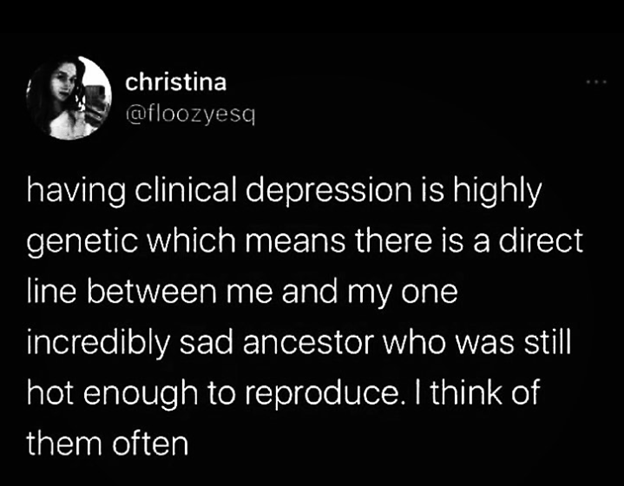this post was submitted on 19 Nov 2023
379 points (98.2% liked)
Bipolar Disorder
611 readers
3 users here now
Welcome!
This is a safe place to discuss, vent, and share information about bipolar disorder. It is also a place for peer support and comfort.
Please use empathy and common sense when posting and commenting. We are all in this together, let’s stay kind and civil.
The rules for posting and commenting, besides the rules defined here for lemmy.world, are as follows:
Rules
- If you are having thoughts of suicide, please call a friend, family member, 988 in the US, or find transportation to your closest emergency room (call 911 in the US).
- Please be sensitive when discussing suicide and self-harm. Posts threatening suicide are subject to immediate removal.
- Posts containing medical advice or diagnosing others are not allowed. If you are posting about traditional or alternative treatment methods, please keep the post focused on your personal experience.
- We do not allow promotion, solicitation, or affiliate links. For interviews, surveys, and studies, please contact the moderators.
- Harassment of any kind is not tolerated. Do not harass any user for any reason including treatment plan/medication adherence, race, religion, gender, sexuality, disability, etc.
- You may post bipolar memes and jokes as well as serious content. This rule may change later at the community’s discretion.
Related Communities
Community Moderation
For inquiry on becoming a moderator of this community, please send a message to the current moderators.
founded 2 years ago
MODERATORS
you are viewing a single comment's thread
view the rest of the comments
view the rest of the comments

Some of those genes were probably helpful in some way in a different context. Kind of like sickle cell in people from malaria prone areas and genes that made the plague less deadly but also make autoimmune diseases more likely. People often forget that there usually aren't many universally superior genes, just genes that help someone survive better in a specific context. The value of traits is relative.